Film Log #5 – 3.2020
In an effort to curtail my cycle of binge watching (and re-watching) programs available on streaming services, I’ve made a more concerted effort to support the local video store – Vulcan Video. Their mid-week 2-for-1 deal keeps me returning fairly regularly.
With that in mind, I figure I’d log a somewhat quick rundown of the films I’ve recently experienced (because, you know, there aren’t already enough people recreationally writing about movies).
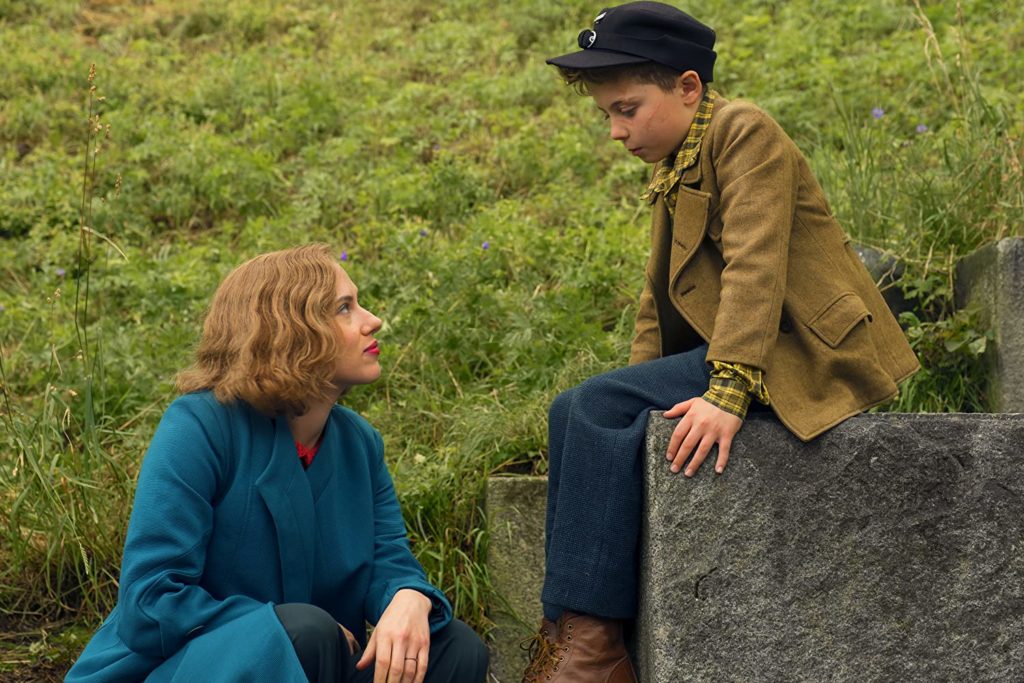
Jojo Rabbit – In order to speak critically about a film that uses the backdrop of World War II to illustrate how senseless fascism, war, and, hatred are, I have to address the concern that this specific era continues to be recycled.
I suspect that storytellers turn to this particular war because the story is already told for us. Very little explanation is required. A human sees a swastika and emotions are immediately triggered. This war eliminates the necessity of world building and stage setting. The chess (or checkers) pieces are easily laid out on the board and the game need not be explained.
This is what I find problematic– what used to be a touchstone of award-winning cinema was how films managed to tackle challenging storytelling and complex subject matter. Whenever I give contemporary cinema a chance, I’m finding weaker stories created by artists who are about as subtle as our politicians with unfortunately increasing frequency.
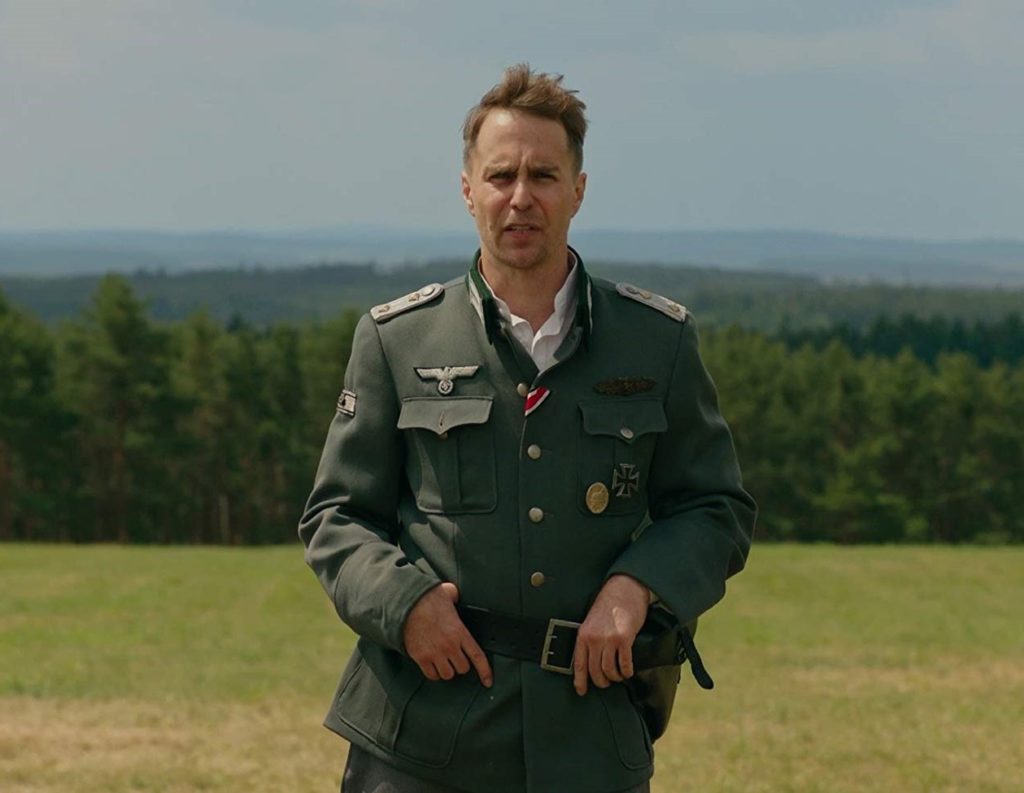
To return to the film at hand, simply put, I watched this film for Sam Rockwell, Scarlet Johansson, and the kid who plays Yorki (Archie Yates). Those three actors and their characters did not disappoint. They each took turns delivering the film’s best lines as well as its most satisfying moments while the lead did his best to pull us through his journey.
The lead, Roman Griffin Davis, doesn’t perform poorly, but his character certainly is overshadowed by everyone around him. I’m finding it tough to remember a time where I enjoyed a film whose main character was the fourth or fifth best character.
Final point: period pieces that are scored by anachronistic pop music torture me. Jojo Rabbit included The Beatles “I Want to Hold Your Hand” (1964), the Tom Waits original “I Don’t Want to Grow Up” (1992), Bowie’s “Heroes” (1977), and Love’s “Everybody’s Gotta Live” (1974).
Rarely do modern scores made specifically to accompany the setting and the era of the project work for me, but using a Tupac song in the middle of an industrial revolution film would be jarring and if you believe that’s ridiculous, then you haven’t seen classic rock used as the soundtrack to A Knight’s Tale.
After considering the lazy music choices, reliance on history to propel the narrative, and the lack of interest in the main character, I wouldn’t watch it again.
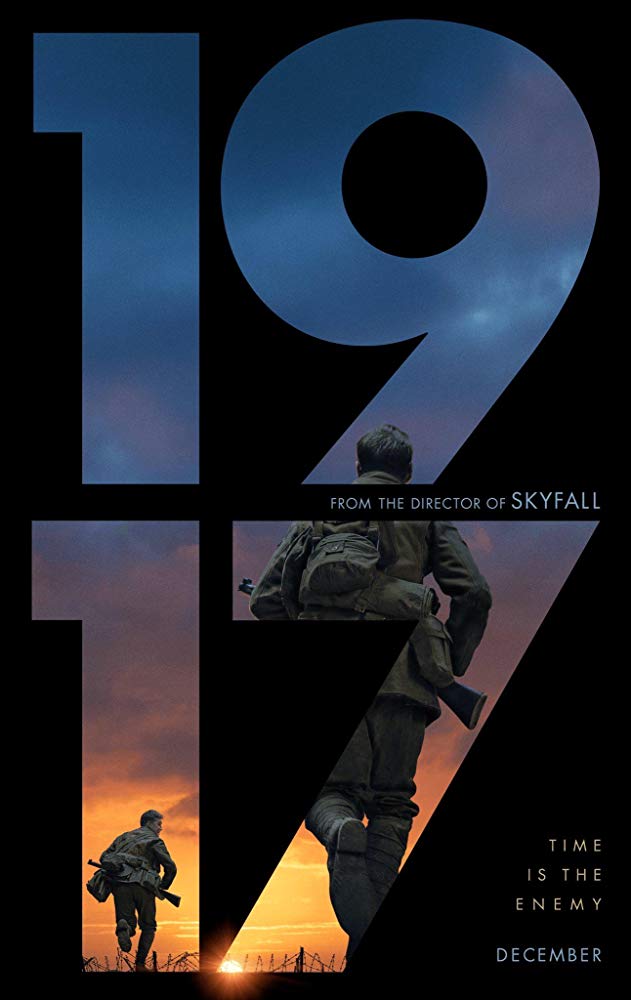
Without attempting to provide much context on the “big picture” motivations of why all these characters found themselves in the grotesque trench warfare of World War I, 1917 quickly enlists the audience on a dangerous mission. In a certain light, it felt similar to how some video games begin. Normally when I weave an aspect from a video game into a film criticism, that’d usually be grounds for an insult, but Sam Mendes and DoP Roger Deakins stunningly pull this off.
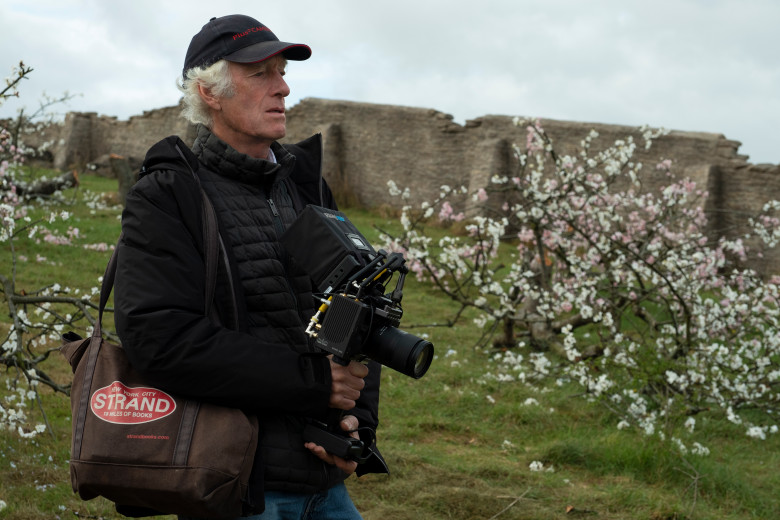
Speaking of Roger Deakins, I’ve already mentioned his work before. The man is arguably the best at his craft. All his films are impeccably shot and it doesn’t take long to realize you’re watching a project that he’s had his hands on.
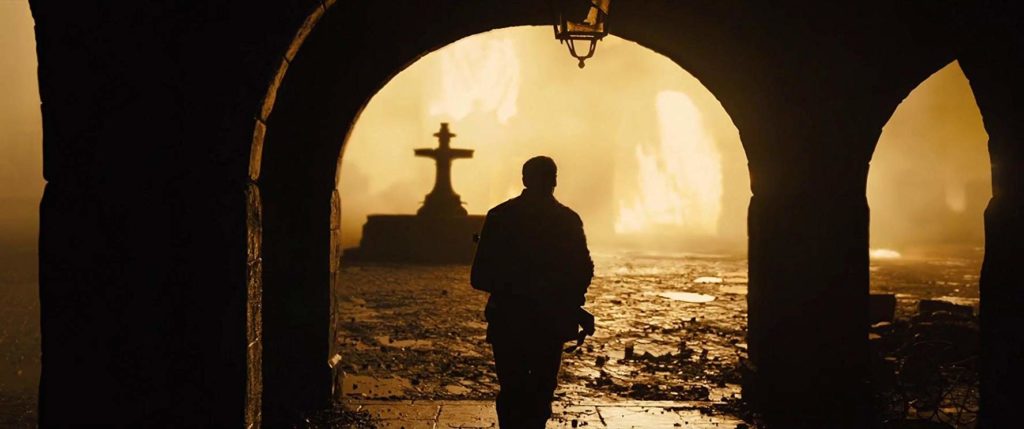
As mentioned, the film plays out by following two young soldiers who have just been ordered to attempt a dangerous mission. Again, this might seem a little on the “ho-hum” side, but I assure you, this film is meaningful and adept at setting up a scene and delivering.
Also refreshing was the lack of history lessons between each act. This expository curse plagues too many history-driven or action-packed films and, yet, this film barely has any scenes featuring dialogue that feels more for the audience than any character actually in the picture.
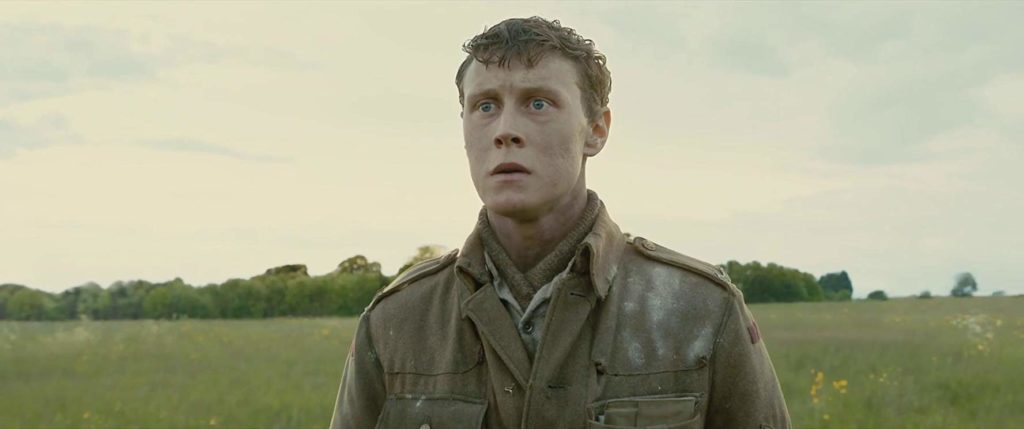
I saw 1917 in the theater and it was well worth it. I’m up for watching it in a home theater, but I’ll definitely jump at an opportunity to see it in a large theater once again down the road. This is one to watch.

Have you ever caught yourself watching a show or film where you simply didn’t like any of the principle characters that you were choosing to watch for whatever reason? I imagine this happens when some people watch reality television (not sure, but it must? Right?).
I came across this scene on a film-centric Instagram account:
And, somehow, that’s all it took for me to rent Mike Leigh’s Naked.
That clip, surprisingly, was one of the more “pleasant” moments. This movie basically carried on as two hours and fifteen minutes of aggression, depression, and faux intellect.
It was simply terrible the whole way through. I didn’t believe the main character, Johnny, to be the misunderstood genius that he believed himself to be. There’s also a consummate prick – Jeremy – who is inexplicably injected into the movie to perhaps neutralize (or lessen the blows) any of Johnny’s social ills and out ‘n out shitty behavior, but instead turns the movie into a weird exhibition of how these two men terrorize these poor women who happen to live together (as well as whoever else’s paths they cross).
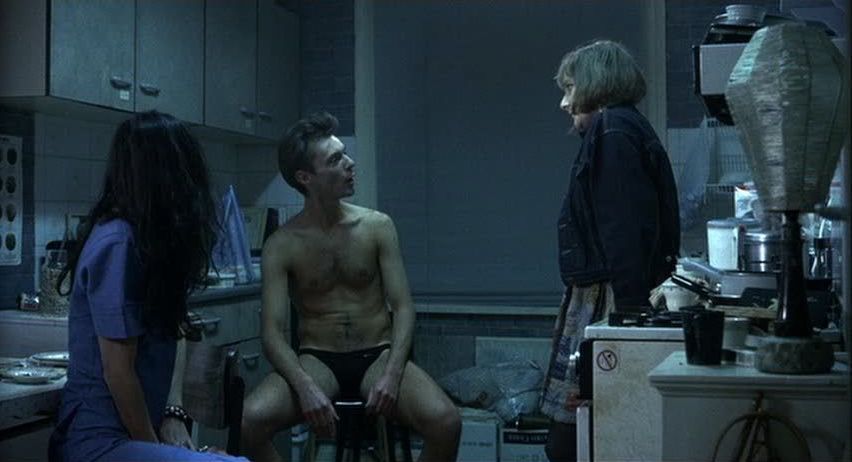
Sometimes cinephiles need a tough viewing. We’ll need a film that pushes our comfort levels and makes us reevaluate what exactly could be labeled as truly difficult to watch. Perhaps the film will later grow on me? I generally tend to enjoy art that prominently positions the British nihilistic streak found in a variety of art from the 1970s through the 1990s, but this film simply felt like watching two men destroy everything and everyone around them without any recourse.
It truly was difficult to watch.
I don’t believe that I’ll be interested to give it another shot. Ever.
I recommend you pass on this one unless you’re trying to really give your tastes a stretch.
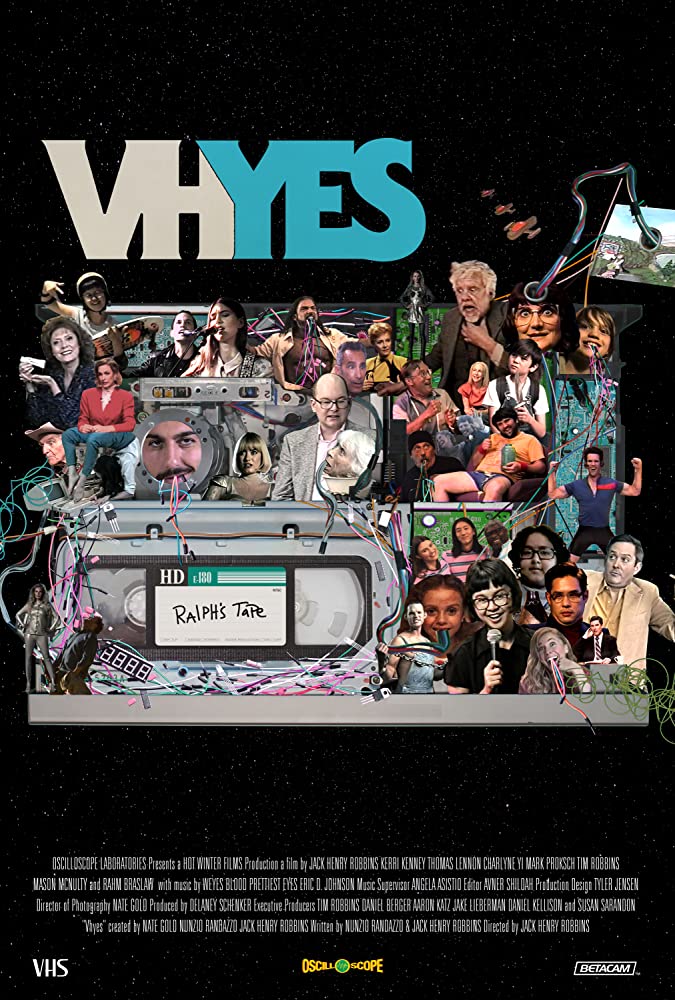
A buddy of mine invited me to a screening of VHYES and I was happy to attend. For as difficult as it is to really enjoy full-length comedic features, I find sketch comedy to be a much more accessible method of enjoying comedy.
Most stand-up specials or comedy sets usually top out at about an hour. VHYES runs at 72 minutes.
I’m not sure why studios try to force some kind of narrative into all of these buddy-cop comedies or buddy-college guy comedies or ladies on a vacation comedies or dudes on a vacation comedies or funny guy dresses up like a lady comedies or funny guy dresses up like a whole family comedies or dudes magically go back in time comedies or mash two people from different cultures together comedies or culturally-specific comedies when it is so obvious that these films are generally built around two or three jokes.
If the folks that make full-length comedy features are happy about their two or three jokes and want to profit off them by unimaginatively constructing a film around those gags, I propose they do what the VHYES team did and simply find a creative way to make a sketch show and instead of serializing it and airing it on television, simply screen it at the theaters and stream it online.
That’s the way I prefer my comedy. The majority of films that attempt to be funny for 90+ minutes are generally terrible by most metrics. In defense of anyone’s proclivity towards full-length comedic features– yes, I have called the sheriff of the “fun police” before.
I enjoyed VHYES. I recommend it over watching 98% of full-length comedic features or re-watching two or three episodes of a comedy program you’ve seen a thousand times.
I’d gladly stream it if/when it’s available.
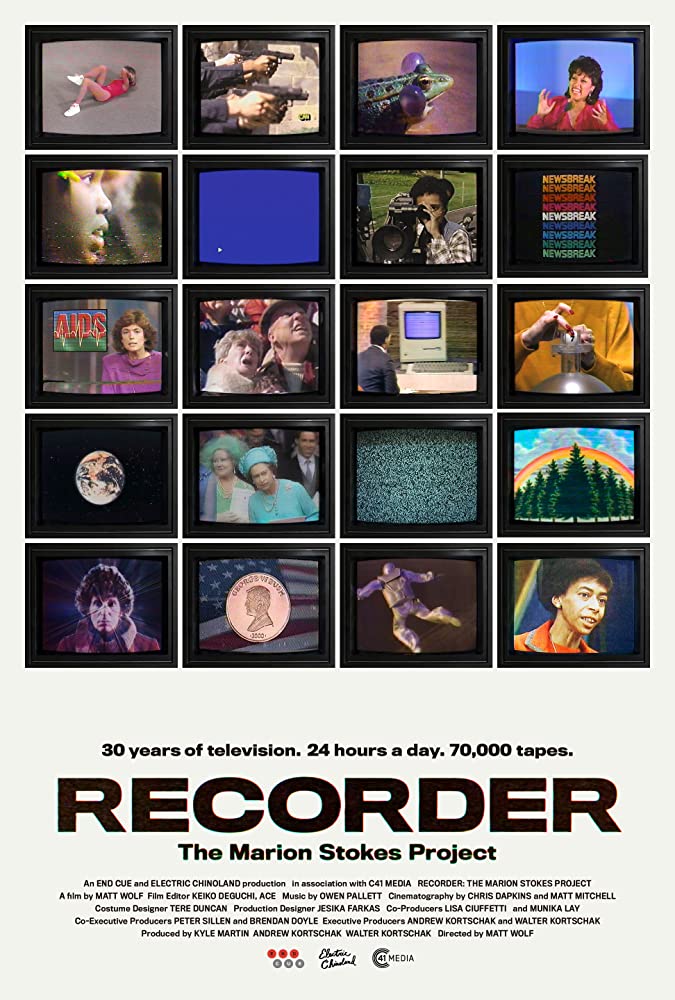
Recorder: The Marion Stokes Project is an interesting documentary about an intelligent but troubled woman who shut herself off to nearly everyone while she recorded and archived television for 30 years.
Marion Stokes made quite a few prescient decisions that grew her wealth and, at some point, this becomes a film about how wealth allows one to do pretty much whatever they want. Obviously, it’s more complicated than that, but only a wealthy person could use eight VCRs and TVs to record and document the media for 24 hours a day for over three decades.
As always, the most interesting question is why? That’s where this documentary shines.
Previously, I’ve pointed out that I’m rarely knocked out by documentaries, and that remains true here. This doc is perfectly fine and worthwhile, but what it boils down to is an 87 minute look at a peculiar and determined woman.
I’ll most likely never see it again and you can take it or leave it as my non-committal recommendation.